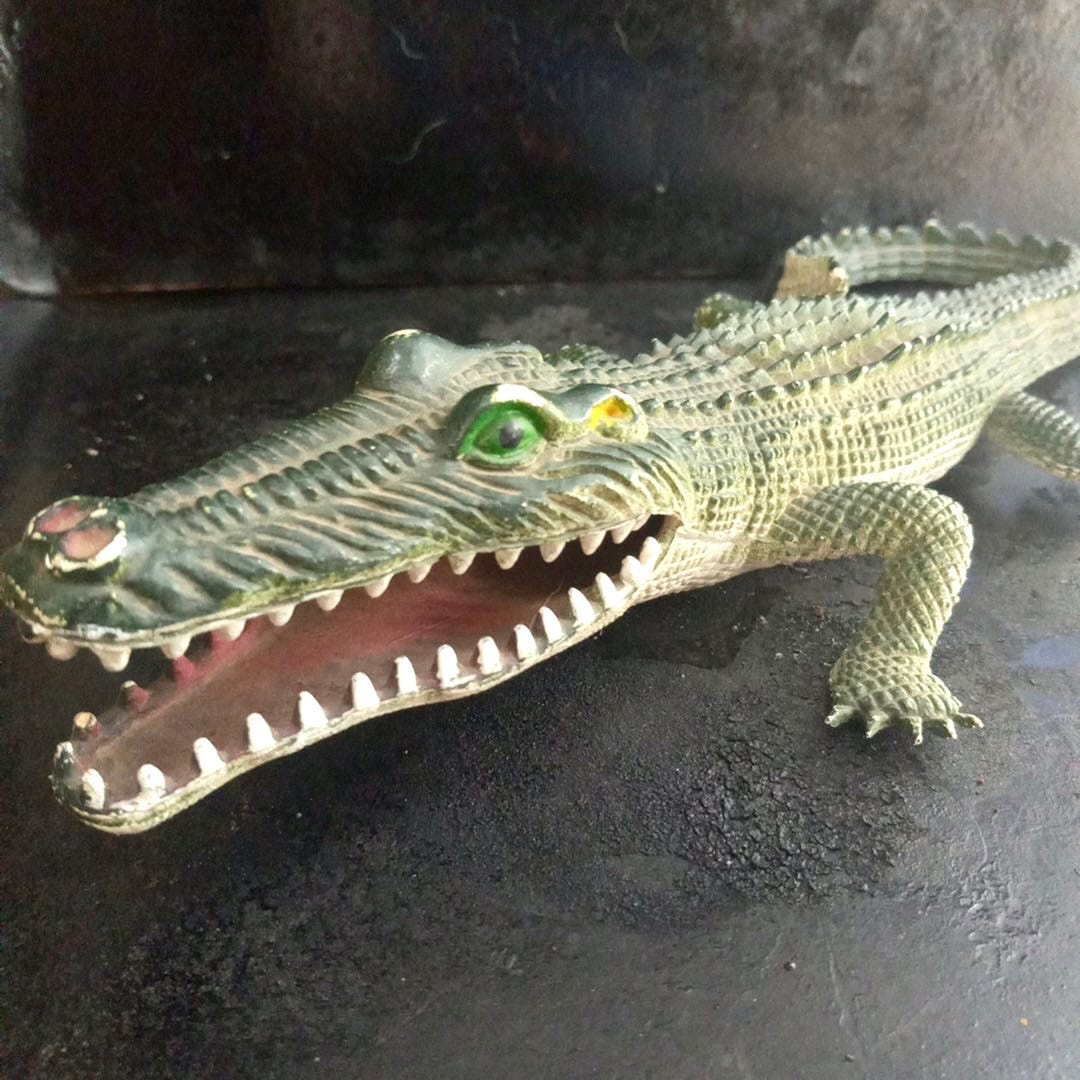THE ALLIGATOR
“It usually appeared as a gift, dressed and wrapped by one or the other of us to honor a special moment or achievement.”
As a twentysomething who loved a good prank, I once snatched a footlong plastic alligator from my younger brother’s bedroom and stuck it in our mother's mailbox, laughing at the thought of her hand bumping into it when she reached for her mail that night. “I almost peed my pants!” she cried when she walked into the house. Soon after, she realized the alligator fit into standard-issue Barbie clothes, and the game was on.
For the next 25 years, the alligator appeared when we expected it least—and sometimes when we needed it most. It’s been dressed as a long-distance cyclist in a neon yellow windbreaker; a drag queen in a satin gown and curly red wig; the Easter bunny, covered with frosting and jelly beans; a tie-dyed hippie with a miniature bong in honor of our trip to the Oregon Country Fair; and once as a lawyer when my mother had to give testimony in court.
Courtrooms terrified her. In 1979, when I was nine, she’d left our abusive father and moved us in with her new girlfriend—only to have a judge rule her mentally unstable and award full custody to our dad. This happened a lot to lesbian mothers back then. Like so many other kids in our situation, we were allowed to see our mom only two weekends a month.
During college I moved back in with her, trying to make up for lost time. By then she was running a group home for people with disabilities and working 60 hours a week. We communicated about groceries through a notebook that lived on the bathroom vanity. Through the alligator, we communicated about love.
It usually appeared as a gift, dressed and wrapped by one or the other of us to honor a special moment or achievement. When I got into a graduate creative writing program in Vermont, it showed up in a snowsuit with a backpack full of minuscule novels with titles like One Flew Over the Alligator’s Nest. When she enrolled in a PhD program in clinical psychology, it marked the occasion in a cap and gown with paperclip spectacles and a tiny replica of the Diagnostic and Statistical Manual.
Then, four years ago, when she was 73, my mother called to tell me she’d been diagnosed with Stage IV ovarian cancer. “I’m okay,” she said. “I’ve been seeing a Tibetan Buddhist monk and re-reading Siddhartha. I’m writing humorous cancer haiku.” Through a torrent of tears, I swiftly sewed a tiny purple robe, transforming the alligator into a replica of the Dalai Lama. That final incarnation sat on her bed in the hospice facility where she lived out her last two months. It became a conversation piece for every doctor and nurse and custodian who walked in, its toothy smile a welcome bright spot in an otherwise dark box of a room.
My mother passed away just before the pandemic, and afterwards her wife shipped boxes of her belongings to me in Oregon. Among them were pictures from my mother’s childhood, some of which I framed and used to make an altar on my bookshelf. The altar has a vase I keep filled with fresh flowers; a tiny stone Buddha; and a little school photo of me at nine, just before a homophobic judicial system turned our world upside down. In the middle of everything, in the place of honor, sits the alligator, unclothed, as naked as my longing for the woman who was both mother and friend.



